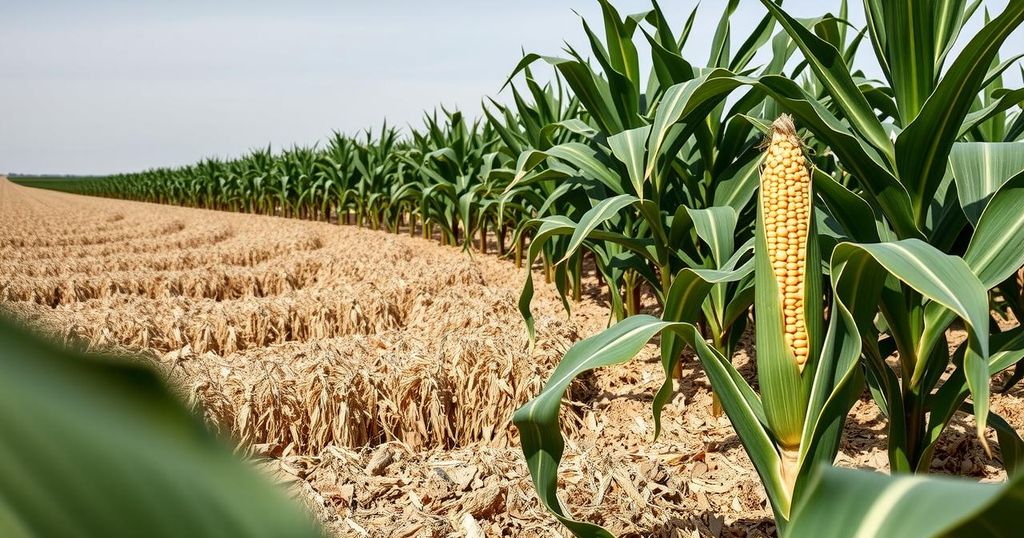Dry Weather Drives Up Soybean and Corn Prices Amid Global Trade Shifts

Argentina’s dry weather has led to a rise in soybean and corn futures, with prices climbing 1.29% and 0.78%, respectively. Wheat futures also increased due to global supply constraints. Meanwhile, Kazakhstan significantly boosted its grain exports, while French farmers protested against unfair competition and restrictive policies.
The recent dry weather in Argentina has heightened concerns regarding the yields of key crops, leading to an increase in soybean and corn futures on the Chicago Board of Trade (CBOT). Soybean prices surged by 1.29% to reach $10.04 per bushel, while corn prices rose by 0.78% to $4.54 per bushel. This price uptick emerges amidst a backdrop of ongoing adverse climatic conditions, even following some beneficial rainfall. Additionally, wheat futures experienced an increase of 0.8%, hitting $5.33 per bushel, driven by global supply constraints attributable to similar weather disruptions. Conversely, Kazakhstan has capitalized on the situation, exporting 3.7 million metric tons of newly harvested grain from September to December—a striking 54% increase from the previous year. Meanwhile, farmers in France have protested against perceived unfair competition and restrictive agricultural policies.
The recent dynamics in the agricultural markets reflect the interconnectedness of global weather patterns and commodity pricing. The challenging weather conditions in Argentina underscore significant vulnerabilities within the global grain market, resulting in price hikes and highlighting supply chain weaknesses. As Kazakhstan enhances its grain exports while the Taiwan Flour Millers’ Association looks towards the United States for wheat supplies, the geopolitical landscape of grain trade is evolving. Furthermore, the bearish positions held by commodity funds as net sellers may introduce additional price volatility into the market.
The context of this article revolves around the impact of climatic conditions on agricultural commodity prices, specifically soybeans, corn, and wheat. Argentina, a major player in the global agricultural sector, is currently facing extreme dry weather which threatens crop yields for the upcoming 2024/25 season. This situation is further exacerbated by Kazakhstan’s significantly increased grain exports, allowing the latter to capture market opportunities amidst Argentina’s difficulties. The article also touches on the sociopolitical consequences of shifting market dynamics, as evidenced by protests in France against unfair labor competition.
In conclusion, the dry weather in Argentina has catalyzed notable increases in soybean and corn futures, reflecting the sensitivity of agricultural markets to climatic disruptions. Furthermore, Kazakhstan’s strategic increase in grain exports adds complexity to the global trade landscape, prompting shifts in supply and demand dynamics. Farmers’ protests in France indicate that such market fluctuations can lead to broader economic and social tensions within agricultural communities, further complicating the state of global agricultural trade.
Original Source: finimize.com







